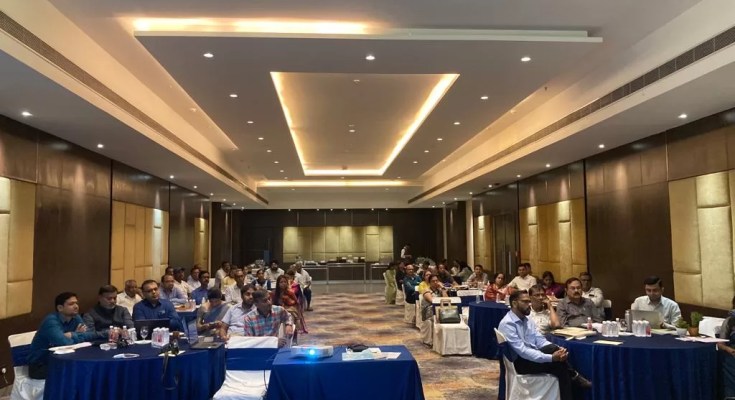Organization of state level workshop to bring public awareness towards Article 5.3 and its implementation in the state.
Raipur 6 October 2023, to implement the provisions of Article 5.3 of the World Health Organization Framework Convention on Tobacco Control (WHO FCTC) to implement tobacco control policies in the state under the National Tobacco Control Program and to stop the interference of the tobacco industry. The state level workshop was organized on Thursday in a hotel in the capital. In the workshop, subject experts from all over the country, while representatives of various departments of the state, gave detailed information about Article 5.3 to the participants. On the other hand, the questions asked by the participants were also explained in detail. Article 5.3 of the World Health Organization Framework Convention on Tobacco Control (WHO FCTC) in India requires governments to protect health policy “from commercial and other vested interests of the tobacco industry”. A state level workshop was organized in connection with this. Officials from various departments participated in the workshop organized in view of the interference of tobacco companies in health policies. Also, emphasis was laid on the implementation of Article 5.3 through public awareness to protect public health.
State level workshop organized in India in relation to Article 5.3 of the World Health Organization Framework Convention on Tobacco Control (WHO FCTC) which calls for measures to protect health policy by governments “from commercial and other vested interests of the tobacco industry” Hui. Officials from various departments participated in the workshop organized in view of the interference of tobacco companies in health policies. Also, emphasis was laid on the implementation of Article 5.3 through public awareness to protect public health. In the workshop organized by the Health Department and ‘The Union’, State Nodal Officer Tobacco Control Program, Dr. Kamlesh Jain spoke about tobacco control in the state. Throwing light on the work being done, he said, “Continuous efforts are being made in Chhattisgarh towards tobacco control. Regarding Article 5.3 of WHO, the Health Department has already issued a letter to all the District Nodal Officers following the Code of Conduct issued by the Ministry of Health and Family Welfare. Besides, this has also been discussed in the state level meeting of the State Tobacco Control Cell (STCC). Soon a draft in this regard will be submitted to the government.”
In the workshop, Dr. Amit Yadav, Senior Technical Advisor of The Union, threw light about Article 5.3. Meanwhile, Dr. Upendra Bhojani, Faculty of Institute of Public Health, Bangalore and DBT Wellcome Trust India Alliance Fellow, elaborated on various types of advertisements and inducements given by tobacco companies to traders and how this can be avoided. Told in advance. Meanwhile, Educational Director of MPVHI, Mukesh Kumar Sinha informed the participants about tobacco control programs and policies in Madhya Pradesh. Also emphasized on increasing public awareness regarding Article 5.3, limiting interaction with the tobacco industry, rejecting the involvement of industries by any means.
During this, Legal Advisor of State Tobacco Control Cell, Khyati Jain, State Advisor Dr. Neha Sahu and Sanjay Namdev of The Union organization gave brief information regarding the topic of the workshop. State officials of The Union organization, Wilesh Raut and Prakash Srivastava threw light on the status of Article 5.3 in the state.
The program was mainly attended by officials of the Education Department, Health Department, Police Department, Urban Development Department, Food and Drug Administration Department, Agriculture Department, Medical Education etc. WHO FCTC Article 5.3 to curb the interference of tobacco companies in the state. Emphasis was laid on implementing and following the code of conduct to ensure compliance. During this, detailed information was given about the role and responsibilities of institutions in tobacco control, means of influence of tobacco companies, obstacles and challenges in tobacco control efforts. The subject experts also threw light on the key points to get the above Article 5.3 approved at the government level.
It is noteworthy that Article 5.3 of the World Health Organization Framework Convention on Tobacco Control (WHO FCTC) and its guidelines provide a roadmap. The FCTC was unanimously adopted by the World Health Assembly in May 2003 and India signed the FCTC on September 10, 2003, acknowledging the undeniable threat of tobacco in the country.
related




